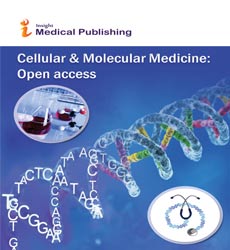Abstract
Concept Notes on Carotenoid Metabolites
Carotenoids are tetraterpenoid consists of series of conjugated double bonds and they are liable to enzymatic or non-enzymatic oxidative breakdown or isomerization at various physiological conditions. Further, oxidation or isomerization can also occur during food processing and other chemical reactions. In general, biotransformation of carotenoids occurs through hydroxylation, epoxidation, isomerization and oxidation-reduction in vivo. Central cleavage of carotenoids gives C20 compounds retinoids, eccentric cleavages gives smaller fragments, notably C10, C13 and C15 compounds with end group. Carotenoids are associated with reduced incidence of major health related problems such as vitamin-A deficiency, age-related macular degeneration, atherosclerosis, cancers and other chronic diseases.
Author(s):
Bangalore Prabhashankar Arathi and Rangaswamy Lakshminarayana
Abstract | Full-Text | PDF
Share this

Google scholar citation report
Citations : 187
Cellular & Molecular Medicine: Open access received 187 citations as per google scholar report
Abstracted/Indexed in
- Google Scholar
- China National Knowledge Infrastructure (CNKI)
- Cosmos IF
- Geneva Foundation for Medical Education and Research
- Secret Search Engine Labs
Open Access Journals
- Aquaculture & Veterinary Science
- Chemistry & Chemical Sciences
- Clinical Sciences
- Engineering
- General Science
- Genetics & Molecular Biology
- Health Care & Nursing
- Immunology & Microbiology
- Materials Science
- Mathematics & Physics
- Medical Sciences
- Neurology & Psychiatry
- Oncology & Cancer Science
- Pharmaceutical Sciences

